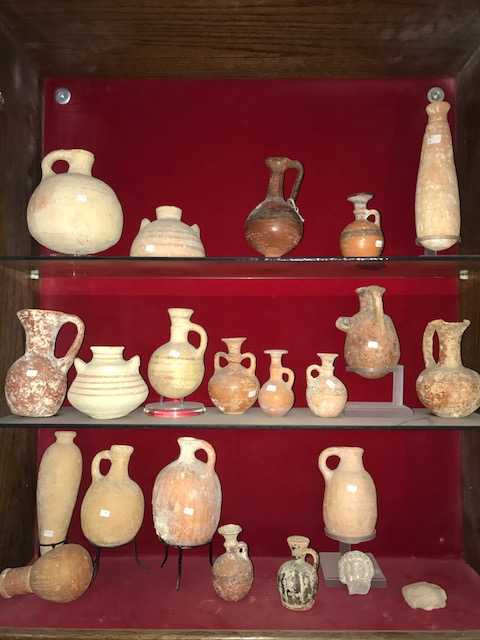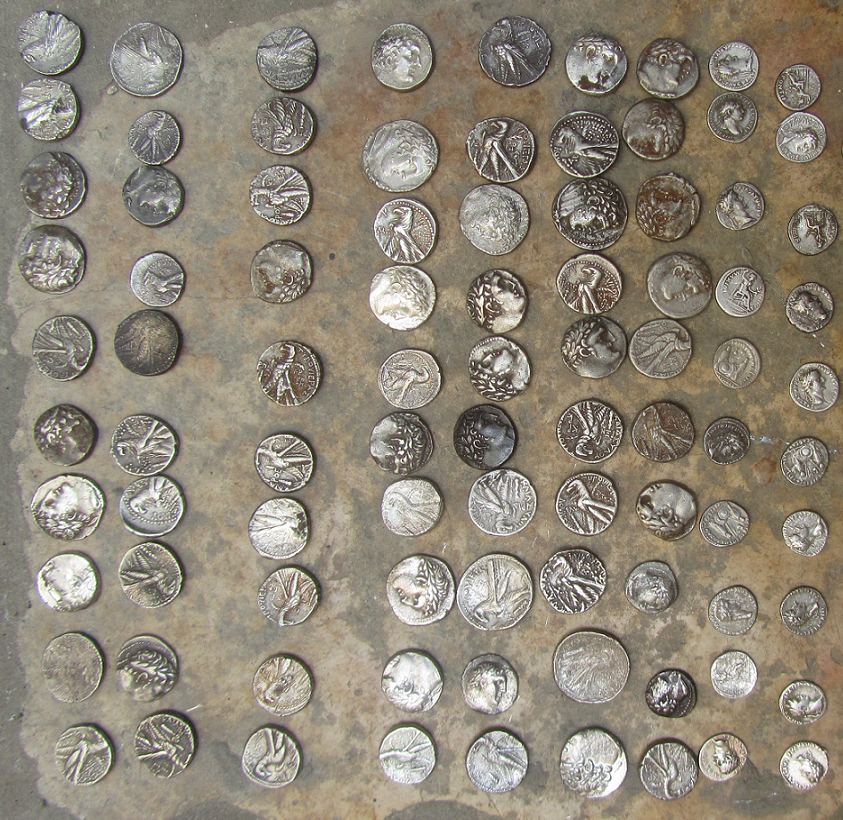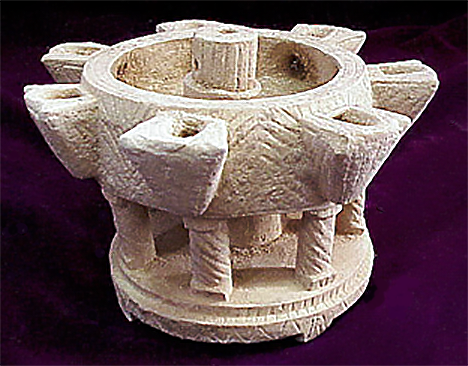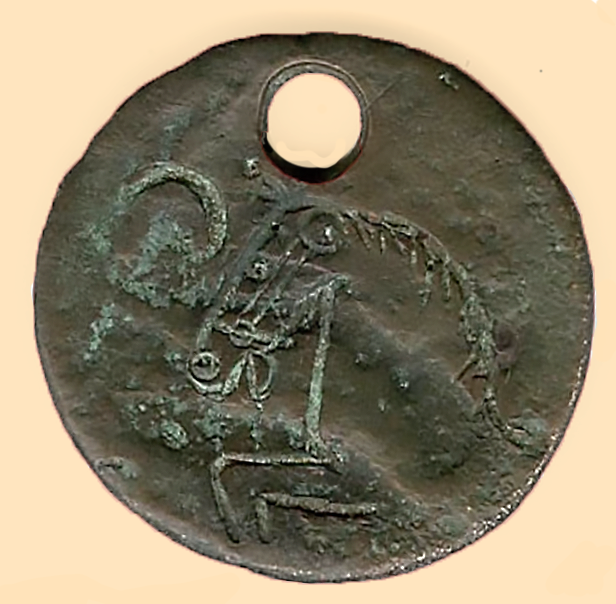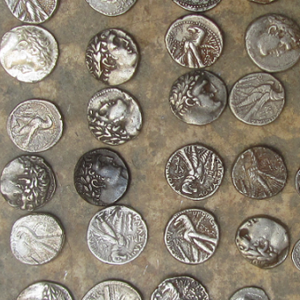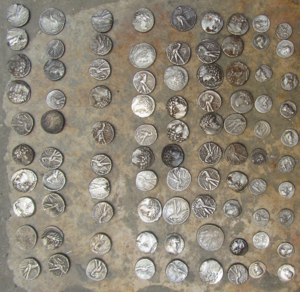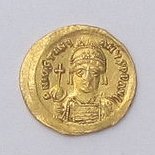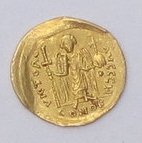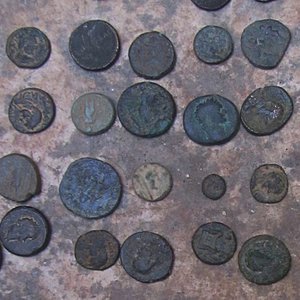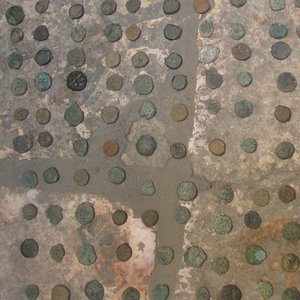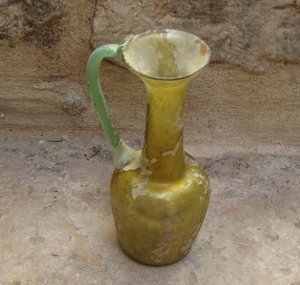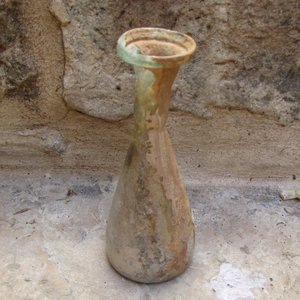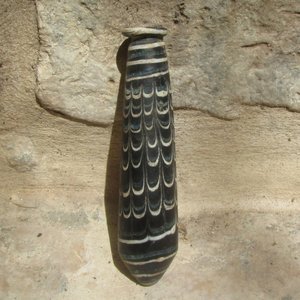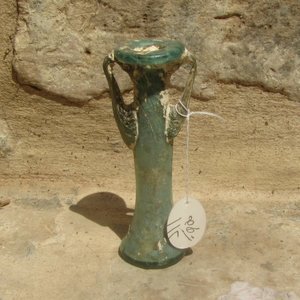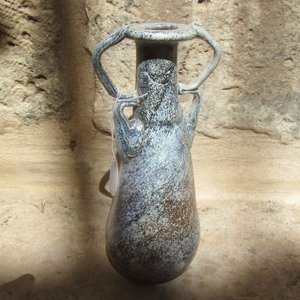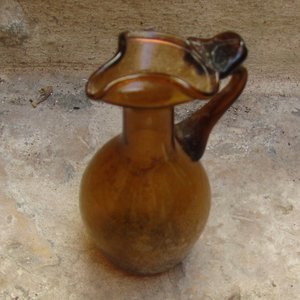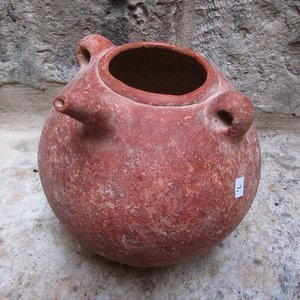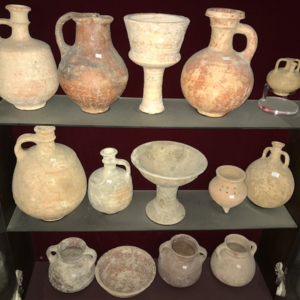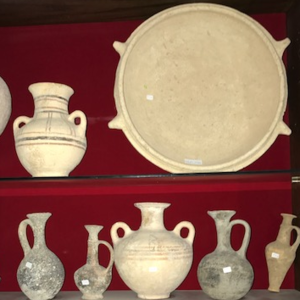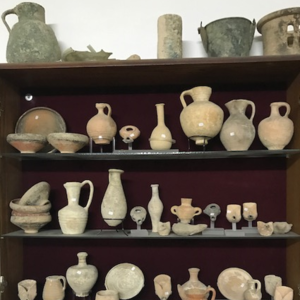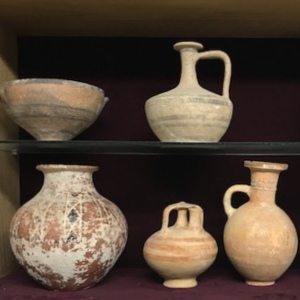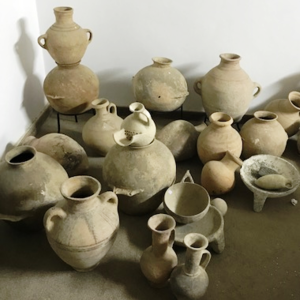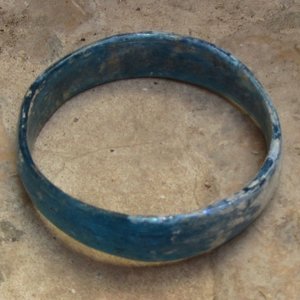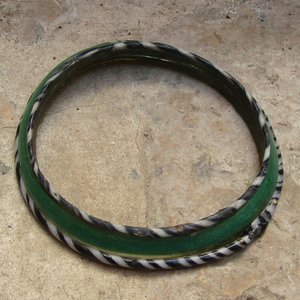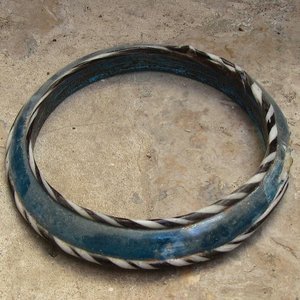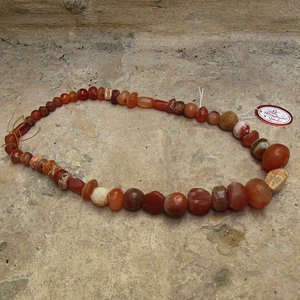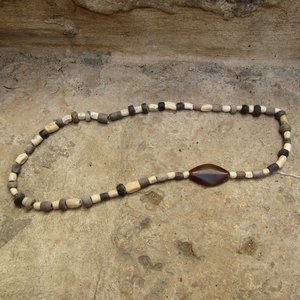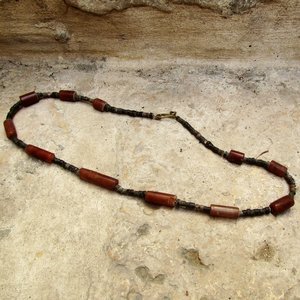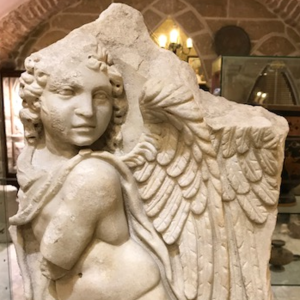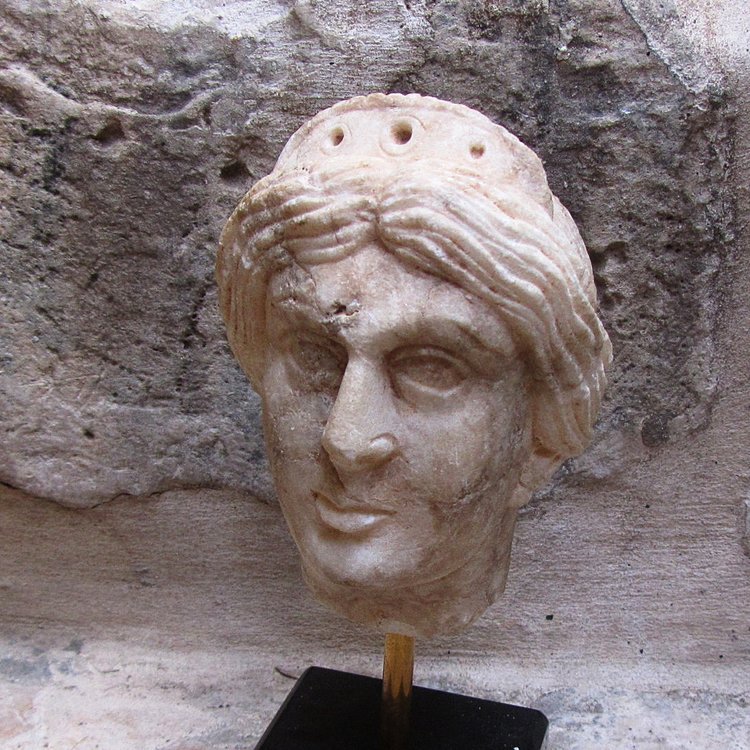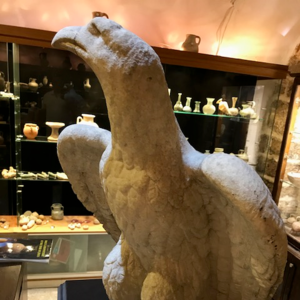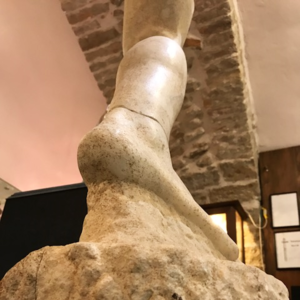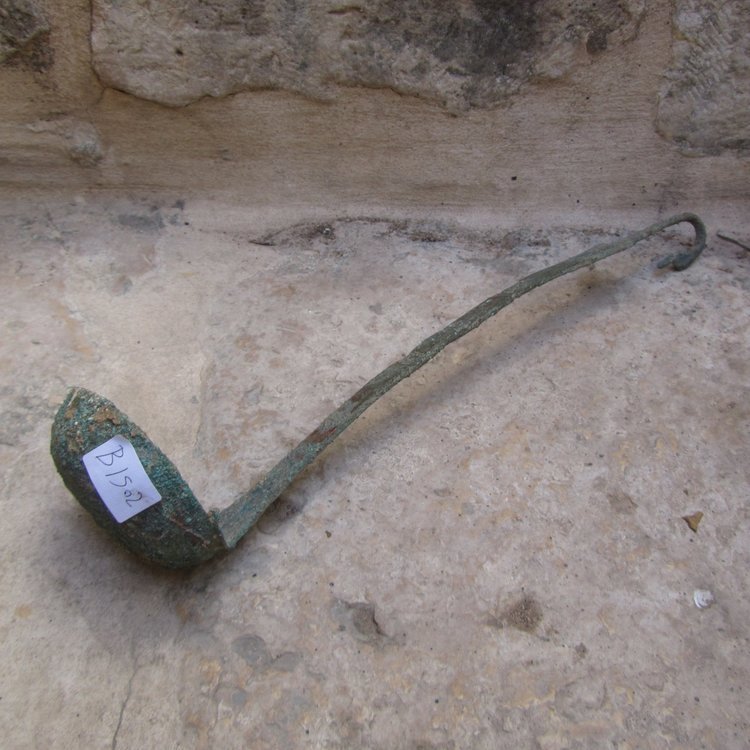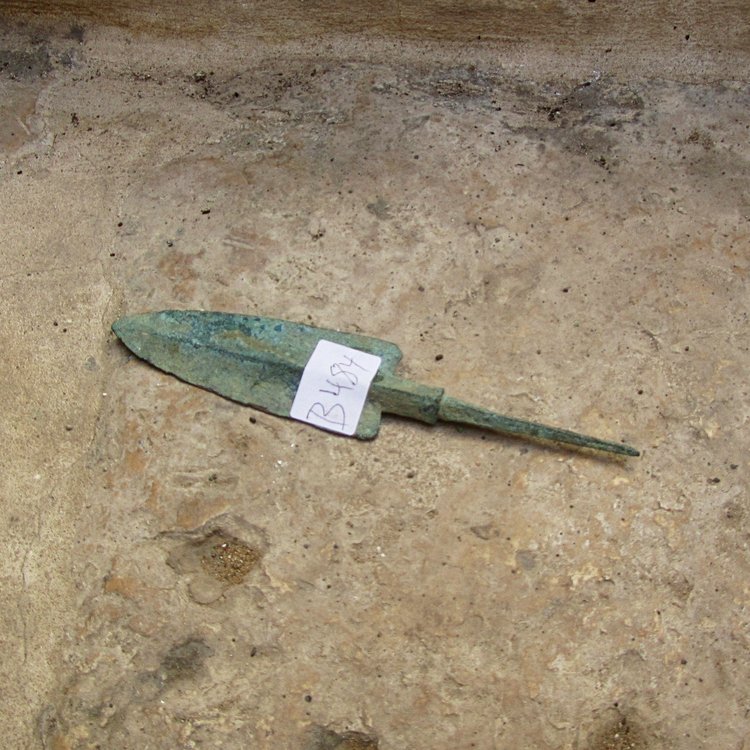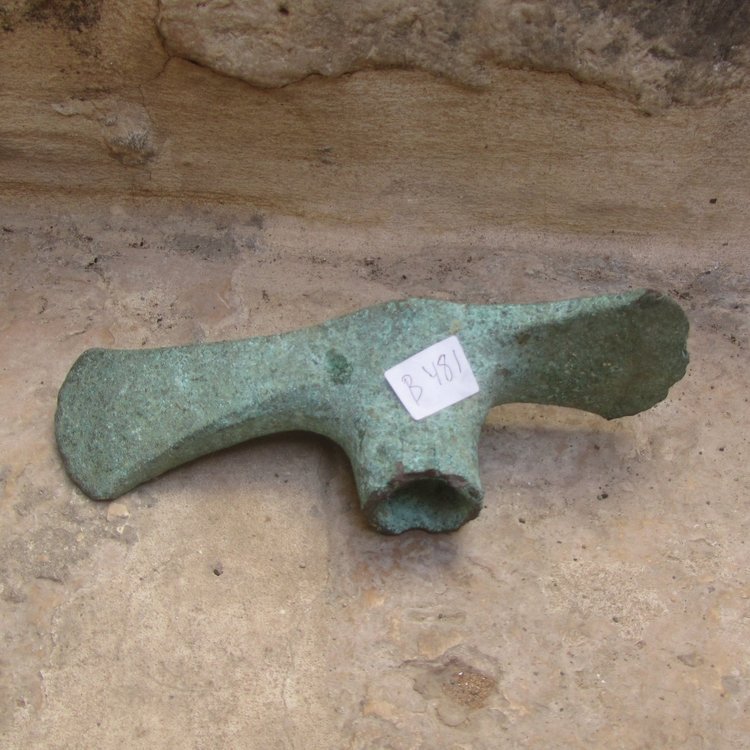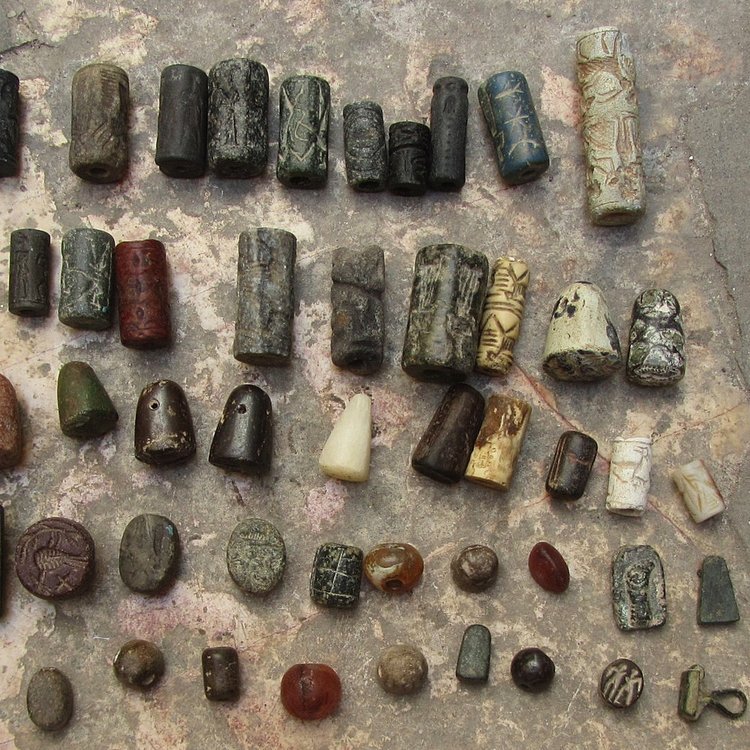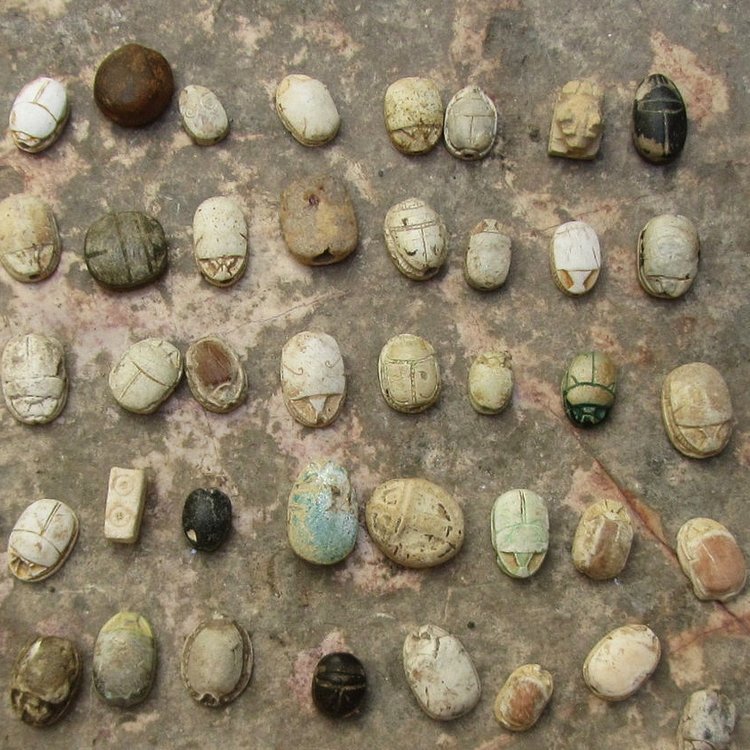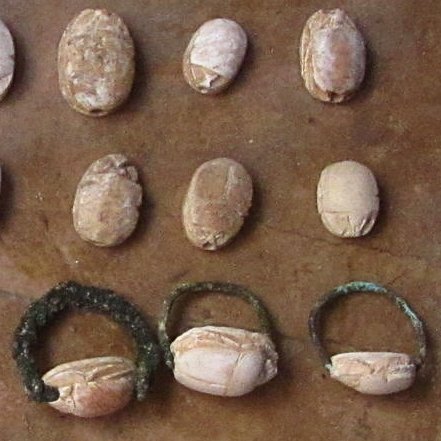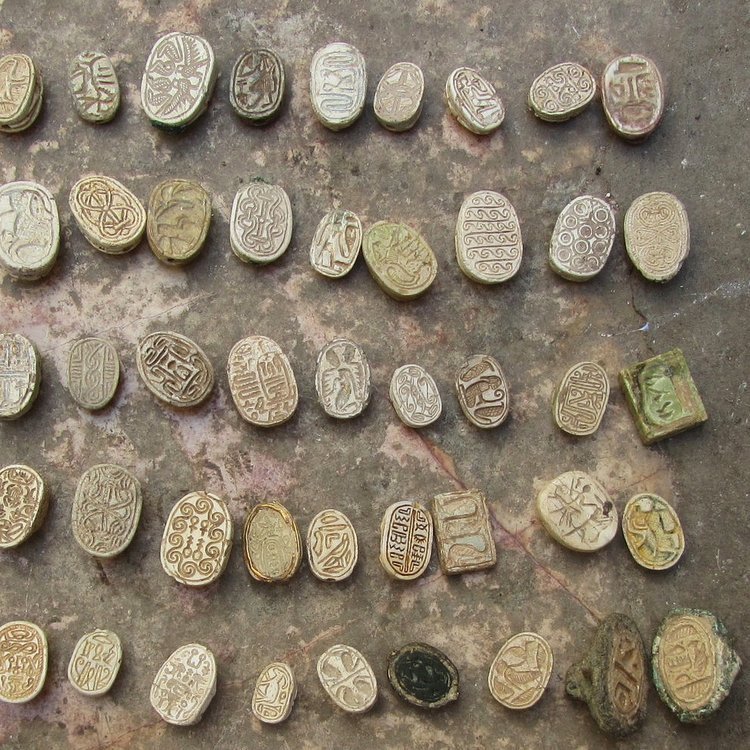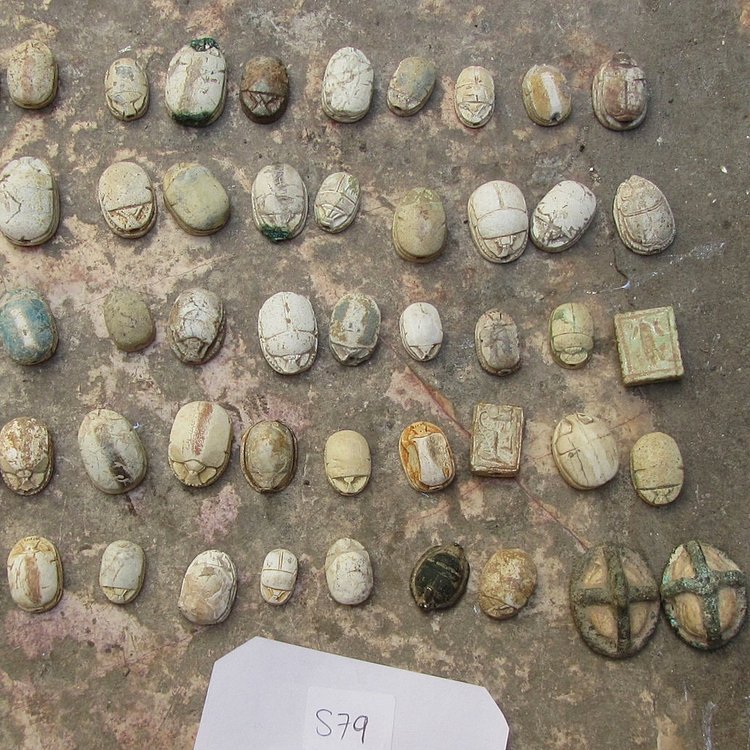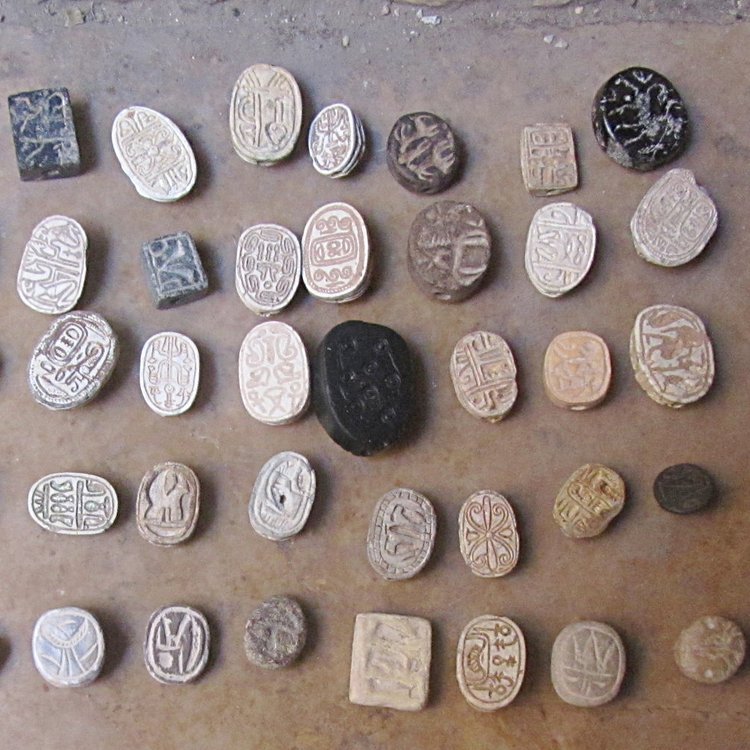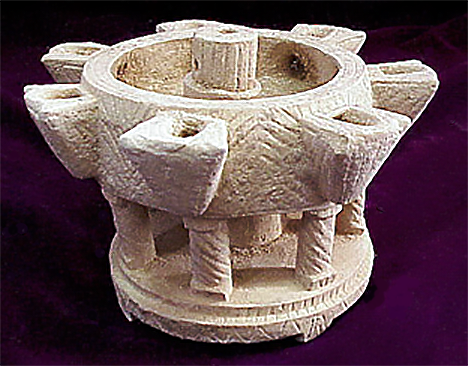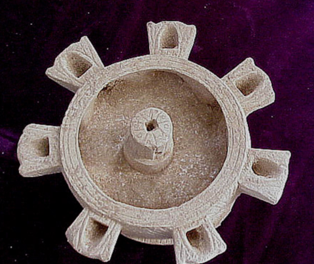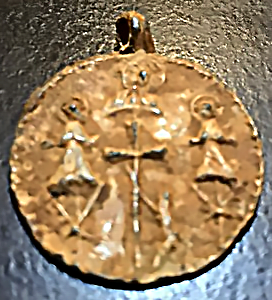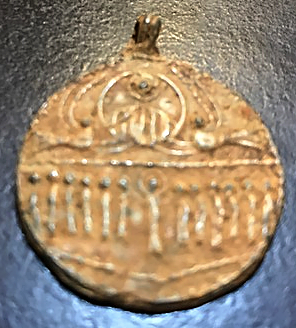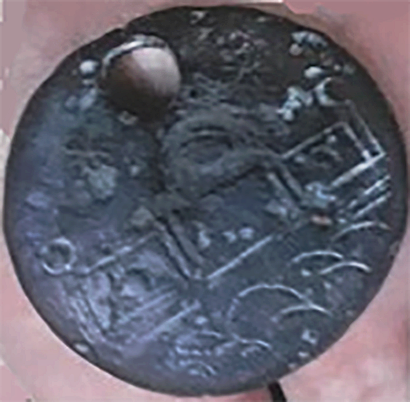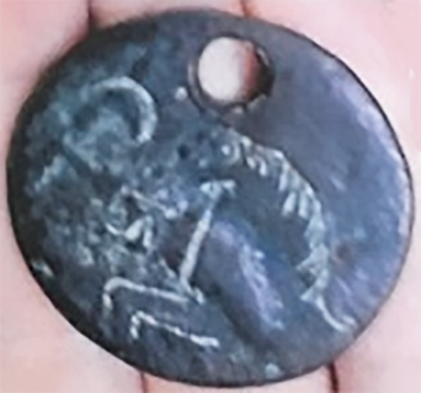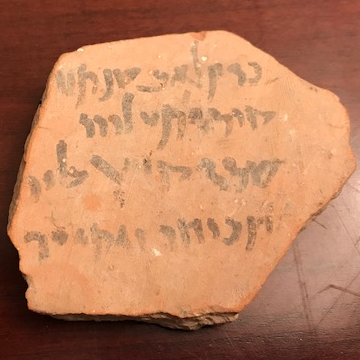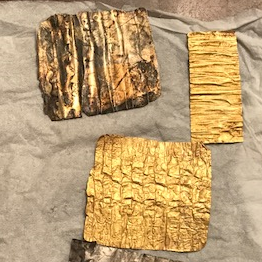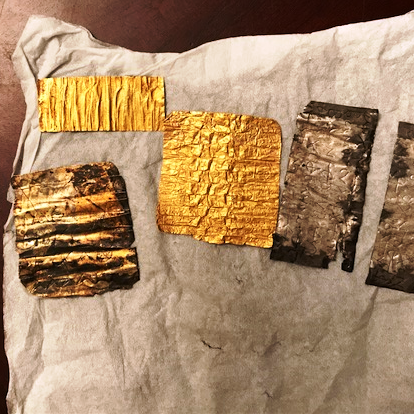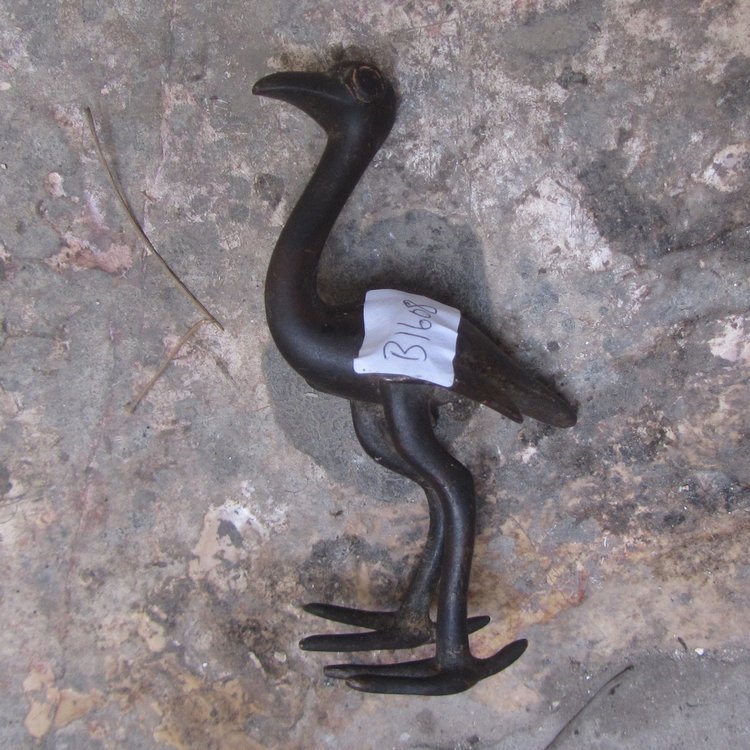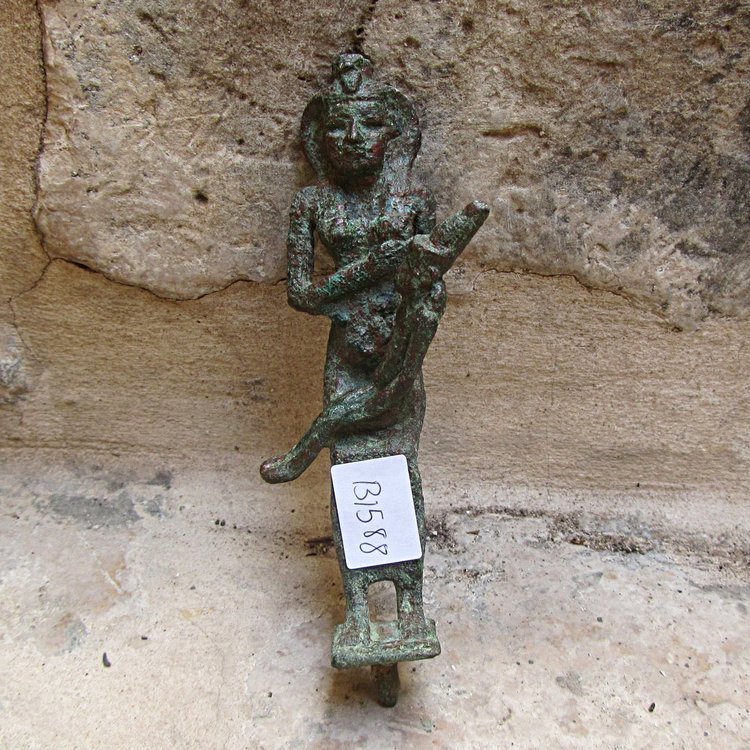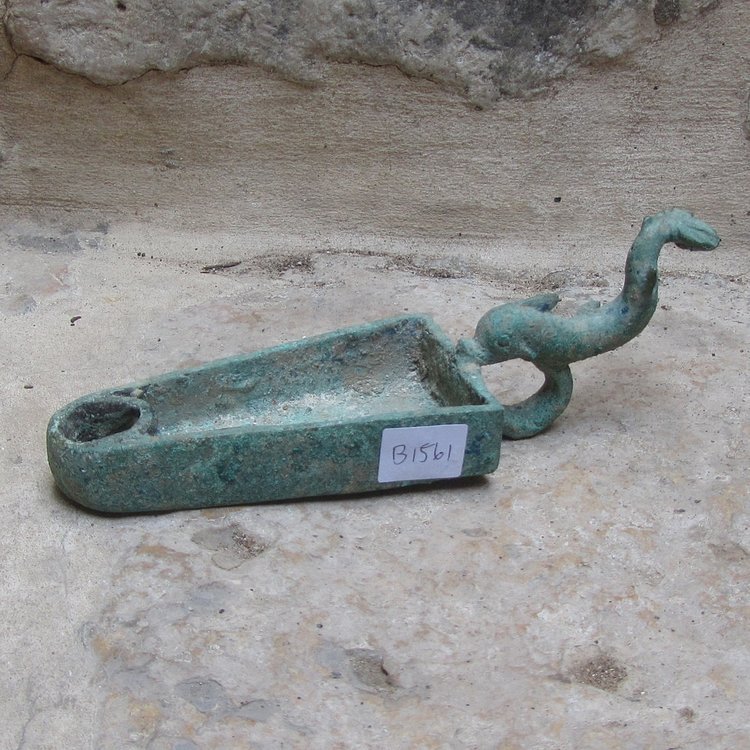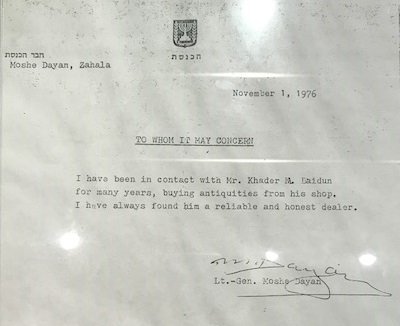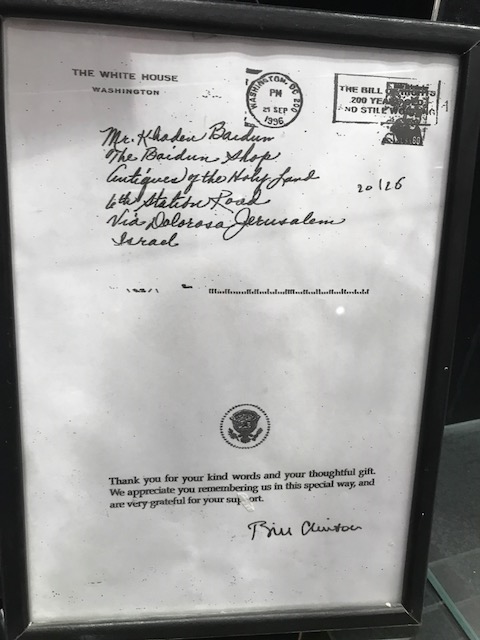ANTIQUITIES OF THE LEVANT
Preserving priceless legacy for generations to come ….
Unparalleled Opportunity – A long-standing Israel based antiquities business makes its collections available for purchase. Consider the collections now available from the long-standing Baidun family of Jerusalem - at the intersection of the three great monotheistic faiths of human civilization.
Representing ancient civilizations of the Levant including early bronze and Canaanite, later bronze and iron age Israelite, Greek, Roman, Byzantine, and Islamic, three collections are available for a qualified purchaser:
Business collection – an estimated 5,000+- items in recent years including glassware, pottery, scarabs, tools, weapons, jewelry, and coins (gold, silver, bronze) — inventoried to address requirements of the Israel Antiquities Authority. with certificates
of authenticity provided together with assistance with export permit arrangements for items to be shipped outside of Israel.Personal collection – another 2,000+/- items focused on fine pottery of the Middle East.
Added collection – signature antiquities of unparalleled value — ranging from sculpture to manuscripts to a one-of-a-kind three faiths collection.
Due to wide diversity of provenance – in terms of culture and era of manufacture represented – the Seller has agreed to make available the services of a well-recognized archaeologist of Palestine to assist with further research and documentation. This generous offer of assistance is available across all three collections.
All are available, preferably as a combined collection. The legacy of a time unlike any other.
Protecting Your Investment - With equity and debt markets in continued turmoil during a period of coronavirus, global conflict, economic restructuring and no clear path to the new new normal, take time to consider the hard asset value of antiquities. And it’s not like supply will get larger — as merchandise available is limited by antiquities regulations — for antiquities unearthed before 1978 in Israel. We’re looking for the single investor ready and capable to take it all!
What follows is a brief sampling of the collections available.
Collections
Coins
Coins, coins and more coins ...... thousands of coins from antiquity. The antiquities of the Levant.
While coins in the Baidun collection cover a wide span of time, a considerable portion consists of coinage from the 1st-2nd centuries (BC and AD):
Maccabean/Hasmonian coins - minted in the 1st-2nd century BC - including the bronze prutah best known as the "widow's mite" cited by Jesus of Nazareth.
Roman coinage - minted under the authority of the emperor or of local prefects/procurators (such as Pontius Pilate). A prime example is the imperial silver denarius (generally equivalent to a about a day's wage for skilled laborers and often used for paying taxes), typically featuring an image of Roman emperors and/or deities. A second example would be a locally minted Roman version of a bronze prutah (which surprisingly avoided placement of graven images as proscribed by the second of the Ten Commandments).
Silver Tyrian shekels and half shekels - used for payment of the Jewish Temple tax and due to their purity, a required exchange necessitating the money changers of the 2nd Temple.
Jewish coinage - under the authority of the reigning Roman approved monarch (the Herodians) - including more of the prutah coins which sometimes departed from Jewish prohibitions against animal or human likenesses; also including Jewish silver and bronze coinage minted during the Jewish Revolt from 66-70 AD.
Glassware
While there is evidence of glassware from ancient Egypt and Mesopotamia, broader trade (as with glass beads) did not become more extensive until about the 13th century BC. With Roman glass blowing technology coming into its own about the first century BC, more diverse glass products proliferated on an increased scale throughout the empire.
The Baidun collections comprise ancient glassware made for a wide range of purposes:
Bottles, pitchers, jugs and vases
Vases
Perfume vials
Jewelry
A sampling of glassware available is illustrated by the photos above. (Note: also see the jewelry collection tab on this website - for examples of glass use in jewelry).
Pottery
The Hebrew Bible (Tanakh) prohibited the creation of various forms of images as being evocative of idolatry, most notably the second of the 10 commandments, stating:
Do not have any other gods before Me. Do not represent [such] gods by any carved statue or picture of anything in the heaven above, on the earth below, or in the water below the land.
Due to Jewish prohibitions against depiction of living creatures, the resulting pottery is known more for simple elegance rather than the complex and high fashion artistry of neighboring Egyptian, Phoenician, Mesopotamian and Greek cultures.
The Baidun family maintains extensive business and personal collections of the pottery of Palestine - spanning a time frame from Abraham to the Byzantine - available for purchase. Depicted by the images above is a representative sampling.
Jewelry
Located on major trade routes and due to successive conquests, ancient Palestine was subject to a wide range of cultural influences. The use of jewelry - as in charms and amulets was generally forbidden by Mosaic law as a sign of idolatry - but with seemingly varied levels of enforcement over time. Practices were considerably different for the non-Jewish inhabitants of Palestine.
Also noted from the Bible and archaeology is that the use of gold was largely reserved for royalty and religious purposes. Even along the coastal strip of Israel with greater non-Israelite presence, unearthed graves tend to be found with pottery, weapons and very simple jewelry.
This simplicity is reflected in the ancient jewelry collection of the Baidun family, consisting largely of:
Bracelets and ankelets
Necklaces - of glass and other beaded materials
Amuletes - shown separately with scarabs
When worn, not extravagent but tasteful and understated.
Sculpture
Throughout its history, the Levant has experienced and affected by a diverse mix of cultures. The Judaic traditions of Israel prohibited human and animal representation. The sensibilities of other cultures - whether indigenous or just passing through - were often considerably different.
When it comes to sculpture, some of the finest of Greek and Roman civilizations found its way to Judea and other points of the Levant. Pictured here are a few examples of sculpture of this time and place:
A Roman Cupid - the winged Greek deity of human desire — whose Greek counterpart was Eros
(sold at Christie’s October 28, 2019 antiquities sale)Male and female busts
A Roman stone eagle
And a leg - reaching skyward
Tools & Weapons
Archaeological finds of the Levant are replete with examples of tools and weapons.
Best described by their utility and functionality. Among the items in the Baidun collections can be found:
Lamps, lamps and more lamps - defined by their ubiquity, variety and simplicity.
Household utensils - such as the ladle pictured above.
Weapons - illustrated by both an arrowhead.
Multi-purpose tools - such as an axehead which might prove useful for battle or more domestic purposes closer to home.
For a sense of how ancient life in the Middle East was lived and fought day-by-day, there's no better place to look than these antiquities made available by the Baidun family. All in one place.
Seals & Scarabs
Available from the Baidun collections are a wide range of seals and scarabs, dating back to the early years of recorded Levant history.
Examples:
Cylindrical seals, are from 3-5 cm long, pierced lengthwise, first originating in Mesopotamia, made primarily of hematite. When rolled over soft clay, they imparted a long roll of impressions. Clay vessels found in Palestine bear impressions from the early Bronze Age (from about the 3rd millenium BC), extending forward.
Scarab seals originated in Egypt, were generally small at about 18x12 mm and primarily carved stone though some are molded. They were made in the likeness of the dung beetle - a symbol of the heavenly cycle of rebirth and regeneration -- used as amulets and impression seals. They appear in Erez Israel, particularly in the Hyskos period (18th-17th century BC)
Scaraboid seals became widespread in the 9th to 5th centuries BC - without beetle markings but used for signatures or to mark possessions in Syria, Phoenicia and Palestine.
Three Faiths Collection
As a long-time owner of antiquities from the Levant, the Baidun family is pleased to offer the following combined collection representing distinctive artifacts of three great monotheistic faiths – Judaism, Christianity and Islam.
All have been made available from the family's private collection:
Circular Temple Menorah - a Second Temple, King Herod period unique and special – very rare – stone ritual multi-nozzle lamp. This lamp was discovered by the father of the collection owner in the 1960s when building his home foundation and has remained in the family’s custody since that time. Based on its typological shape – structure/nozzle, it can be dated to the time of the Herodian second Temple era, possibly serving as a Temple ritual use item.
Early Christian Medallion - dating to about the 4th century AD. Made from lead, the medallion signifies the crucifixion and Jesus' Last Supper with twelve disciples.
Islamic Medallion - an early and perhaps first known object recording the theme of Muhammad’s night journey on the winged steed al-Burāq (the “lightning”) from Mecca to Jerusalem and then to Heaven and back. (al-Israa’ wa’l-Mi’raj). Approximately 35 mm in size and weighing 33.1 gm, this medallion was most likely engraved during the early part of the Umayyad period (661-750 CE) on an ancient Greek Ptolemaic bronze coin (3rd century BCE).
While these items might be purchased separately, the Baidun’s hope is for a combined collection - illustrating the continuing importance of all three great monotheistic faiths for the history and future of the Levant - and for our global civilization.
Sacred & Profane
The story of the Levant is carried across myriad strands of history -- a web of cultures, sacred and profane. These strands leave opportunities for yet more disparate odds and ends - also part of the Baidun collections.
With this page, we sample the diversity of other select items, as for:
Ancient writings - as on ostracons (potsherds used in writing) and later metallic scrolls
Pagan influences - including idols and metalworkings of animals or common every day items but with a decided non-Hebrew twist.
Then and now, the Levant geography at the eastern edge of the Mediterranean reflects a dizzying set of cultural influences, religious practices, military and political arrangements. Always changing but with distinctive influences carried through time.
Taken together, the antiquities collections of the Baidun family reflect this extraordinary diversity. Sophisticated and mundane. At the intersection of the known world - then and now.
If we can understand where we have been, then maybe there's yet a chance to figure how we live, work, and worship - separately yet always interconnected - for generations to come.
Important note: Some items, such as metal and shards or scroll writings with inscriptions are not allowed to be exported from Israel. These and other export purchases from Israel are subject to review and approval by the Israel Antiquities Authority and other governing authorities.
(See “purchase information” below for more detail).
About
Baidun Fine Antiquities
Collections described on this web site are being made available for purchase by Baidun Fine Antiquities - located on Jerusalem's Via Dolorosa. Since 1927, the Baidun family has been associated with a well-known and longstanding antiquities business - responsible for collections spanning from the Iron Age to the Ottoman Empire. The Baidun collection began with early purchases of antiquities prior to Israeli control of the West Bank.
With the video below, we invite you to meet business owner Mr. Khader Baidun. Get to know his passion for the history, religions, cultures and peoples of the Levant. And the Baidun family’s desire to preserve this legacy for generations yet to come.
Letters above represent a small sampling of correspondence over the years — including correspondence from Israeli General Moshe Dayan and former U.S. president Bill Clinton (as shown).
Eric Hovee - Seller’s Representative
This collection is represented by Eric Hovee, Principal and Owner of E. D. Hovee & Company, LLC. For more than 35 years, E. D. Hovee has provided economic and development consulting to public, private, and non-profit clients — primarily in the Pacific Northwest but also elsewhere in the Americas. For more information about Mr. Hovee and his firm, click on the following link for: www.edhovee.com
Mr. Hovee also has a long-standing interest in the history, culture, and theology of the three great monotheistic faiths of the Levant - Judaism, Christianity and Islam. A particular focus is to “rediscover the Jesus of history ... pertinent for today.” For more information, check out the associated website: www.jesustheheresy.com
Purchase Information
The Baidun family would prefer to sell all collections as a single transaction.
PURCHASE ARRANGEMENTS
The (Baidun) Seller’s collections have been made available at a cash price as may be mutually agreed between the parties. Requested will be a lump sum payment or a down-payment and installments timed to coincide with merchandise shipments. Use of a letter of credit or escrow arrangements handled in the U.S. or as otherwise agreed through an independent third party may serve as funding mechanisms pursuant to instructions as mutually agreed between the purchaser, Seller, and Mr. Eric Hovee - as Seller representative.
The Seller has authorized Mr. Hovee (see contact information) to serve as its representative on behalf of contacts made toward the sale of its full remaining antiquities inventory. Any sale made via Mr. Hovee’s representation will include a transaction fee as a portion of the gross sales amount. Mr. Hovee may consider shared fee arrangements in situations where a purchaser is introduced or referred by a third party.
The purchase price is expected to include the transaction fee as well as shipping cost. Shipping including offsets for any damage is the Seller’s responsibility. The Seller will provide Certificates of Authenticity with each purchase and will assist with export permit arrangements for all items to be shipped outside of Israel.
Availability of merchandise is subject to review and approval by the Israeli government and customs authorities of the U.S. or other countries to which merchandise is shipped. Mr. Hovee intends no representations with this web site, other written or oral communication regarding merchandise provenance or appraised valuation, Seller capacity to deliver, or legal requirements — except as may be confirmed by other applicable and appropriate parties. All due diligence is the responsibility of the Purchaser.
According to Israeli law, all the artifacts in a licensed shop must have been unearthed before 1978, and have been resold or bequeathed since then. Based on discussion with the Seller and Israel Antiquities Authority (IAA), it has been understood that:
The IAA will support efforts for possible buyer(s) interested in purchasing the Baidun’s commercial stock and private collection.
Not all the antiquities items possessed by the Baidun family are exportable according to the Israeli Antiquities law (based on criteria such as rarity, archaeological context, historical value, and national value). Items precluded from exportation may be sold only in Israel.
Every act of selling, trading and exporting will require pre-authorization by the IAA. In addition to IAA pre-authorization, export purchases from Israel may be subject to review by other appropriate governing authorities in or outside Israel.
Contact information for appropriate representatives with the IAA may be made available, on request.
Purchase arrangements are subject to change without notice or as may be revised based upon further negotiations, Israel-stipulated requirements, and as agreed between Purchaser, Seller, and Hovee. Information provided with this web site has been obtained both from the Seller and other antiquities-related sources. Accuracy is not guaranteed and all information provided including the content of this web site is subject to change without notice.
FOR FURTHER INFORMATION
If interested in pursuing a purchase of the Baidun collections, Mr. Hovee is prepared to coordinate arrangements with the Seller as for pricing and other information, submittal and review of a purchase proposal. Electronic files with added photos illustrative of the merchandise represented may also be made available on request to Mr. Hovee.
If interested, Mr. Hovee also is prepared to provide fee-based consulting services to a prospective purchaser. In the event of a completed transaction, the transaction payment to Hovee may be adjusted or reduced by the amount of any consulting fee previously paid by purchaser to Hovee or as otherwise mutually agreed; however, in no event will Hovee receive less than the amount of the contracted consulting fee. Other arrangements may be made as a mutually agreed to by all parties - including any required regulatory reviews or approvals.
This Baidun collections represent an investment that can not be replicated.
We appreciate your interest in preserving this legacy for the Owner/Seller and for the peoples of the Levant
For further information about any aspect of the collections or potential interest in purchasing all or some portion of the Baidun collections, please contact:
Mr. Eric Hovee
Phone: +1-360-921-6430
Email: ehovee@edhovee.com
Questions and comments are most appreciated.
